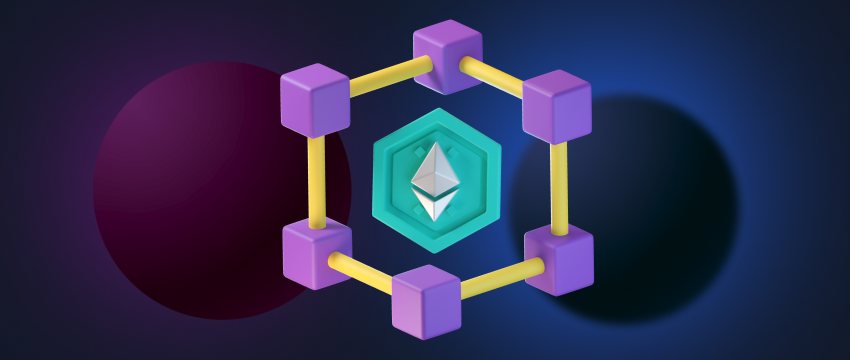Blockchain technology is a revolutionary innovation that has the potential to transform diverse industries worldwide. This includes healthcare, supply chain management, finance, infrastructure and energy, government, retail, information and communication, and many more. Blockchain has also been said to play a pivotal role in the cryptocurrency space, particularly in maintaining a secure and decentralised record of transactions.
Key characteristics of blockchain technology:
- Blockchain is a decentralised system without the oversight or control of any one government, entity, or regulatory body.
- It is a distributed database or ledger that allows secure and transparent transactions between different parties without the need for intermediaries.
- It can be used to make data immutable (inability to be altered), regardless of industry.
Blockchain technology has enabled the creation and functioning of digital currencies like Bitcoin, Ethereum, and others. In this article, we will explore the role of blockchain technology in digital currencies and its impact on the financial industry.

A closer look at Blockchain
A blockchain is a decentralised, digital ledger that records transactions in a manner that is transparent and secure. It is shared among a network of computers (nodes) that communicate with each other to validate and confirm transactions. Each block in the blockchain contains a set of transactions. Once a block is added to the chain, it cannot be altered or erased.
Blockchain technology offers several benefits:
- Decentralisation, i.e., the blockchain is not controlled by a central authority and equal rights/responsibilities are assigned to all nodes in the network.
- Transparency ensures all transactions are visible to all participants and that the validity of all transactions can be verified by anyone.
- The blockchain is considered secure from unauthorised access or tampering due to the application of decentralisation, cryptography, and consensus principles.
- Immutability meaning once a transaction is recorded on the blockchain, it cannot be changed or deleted.
What are digital currencies?
Digital currencies are a type of currency that exists only in digital form and uses encryption techniques to secure and verify transactions. Unlike traditional currencies, digital currencies are not backed by a central authority or government. Their value is determined by market demand and supply.
Digital currencies do come with risk, however:
- Volatility. Digital currencies are highly volatile, with their values fluctuating quickly and unexpectedly, sometimes within hours. As a result, they are often considered too risky an investment.
- Lack of regulatory oversight. Traditional currencies and financial systems are usually regulated by governments or banks. Digital currencies are not, making them more vulnerable to fraud or manipulation.
- Security. Digital currencies are typically stored in digital wallets that are susceptible to hacking and/or theft. If a wallet becomes compromised, the digital currency stored in it can be lost in its entirety.

- Limited use: Digital currencies are still not widely accepted as a form of payment, reducing their usefulness. In addition, some governments have banned or restricted the use of digital currencies entirely, further limiting widespread adoption.
- Fraudulent schemes: Digital currencies have not been without controversy, attracting scammers promoting fraudulent schemes or selling fake digital currencies. Hypervigilance is crucial.
- Environmental impact: The process of mining cryptocurrencies is energy intensive. This has resulted in considerable concern about the negative impact this could have on the environment potentially.
It is abundantly clear that many of these risks must be considered before investing in digital currencies. Furthermore, investors must be mindful of only investing what they can afford being that the risk of incurring huge losses is high.
Popular digital currencies
Bitcoin
Created in 2009, Bitcoin is probably the most renowned digital currency in the world. The currency is based on blockchain technology. It uses a decentralized network of computers to process transactions. Transactions on the Bitcoin blockchain are verified and confirmed by network nodes, and once a transaction is confirmed, it is recorded on the blockchain.
Ethereum
Launched in 2015, Ethereum has also gained popularity, not only as a digital currency but also as a platform that enables developers to build decentralised applications (dapps) using blockchain technology. Ethereum’s cryptocurrency is called Ether, which is used to pay for transactions on the Ethereum blockchain.
The role of blockchain relative to digital currencies
Blockchain technology has certainly contributed significantly to the development of digital currencies.
Firstly, blockchain technology has enabled the creation of decentralised digital currencies like Bitcoin and Ethereum. As a result, neither cryptocurrency is regulated nor controlled by a central authority or intermediary. It also means that all transactions are processed and verified by a global network of computers (nodes).
Secondly, blockchain technology also offers an unprecedented level of transparency in the way digital currencies are used by allowing anyone to view all transactions on the blockchain. This transparency seeks to ensure that transactions are secure and aims to help prevent fraud and corruption.
Thirdly, blockchain technology makes use of cryptographic techniques to protect digital currencies from unauthorized access and tampering. The security provided by blockchain technology aims to guarantee that:
- transactions are safe and secure
- digital currencies cannot be counterfeited or duplicated.
Fourthly, blockchain technology offers immutability which means a transaction recorded on the blockchain cannot be altered or deleted. Consequently, transactions on the blockchain are permanent and the integrity of the digital currency is maintained.

Becoming a T4Trade trader
T4Trade is a global broker, growing in popularity with traders worldwide. T4Trade offers brokers access to more than 300 financial instruments across 6 asset classes. This includes forex, shares, futures, metals, commodities, and indices. With T4Trade, traders can buy or sell their favourite assets via CFDs and explore trading opportunities with flexible or fixed spreads. The broker also provides traders with fast execution of trades, flexible trading conditions, and security of funds. A dynamic multilingual customer support team also provides global traders with top-tier customer support throughout their trading journey. In addition, T4Trade’s MT4 platform offers traders key trading tools and features required to make optimal trading decisions.
Disclaimer: This material is for general informational & educational purposes only and should not be considered investment advice or an investment recommendation. T4Trade is not responsible for any data provided by third parties referenced or hyperlinked, in this communication.




